Tuesday Feb 17, 2026
Tuesday Feb 17, 2026
Friday, 13 November 2015 00:02 - - {{hitsCtrl.values.hits}}
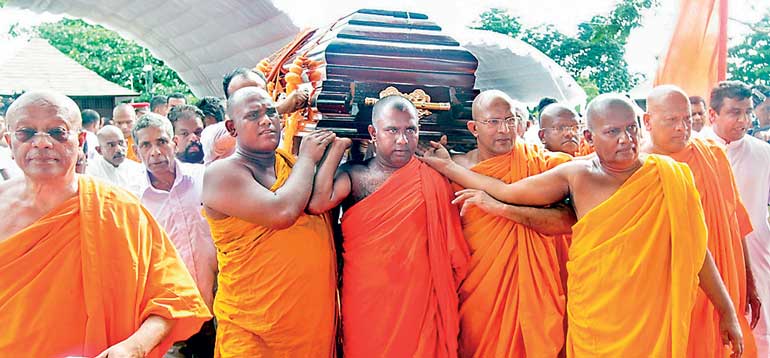
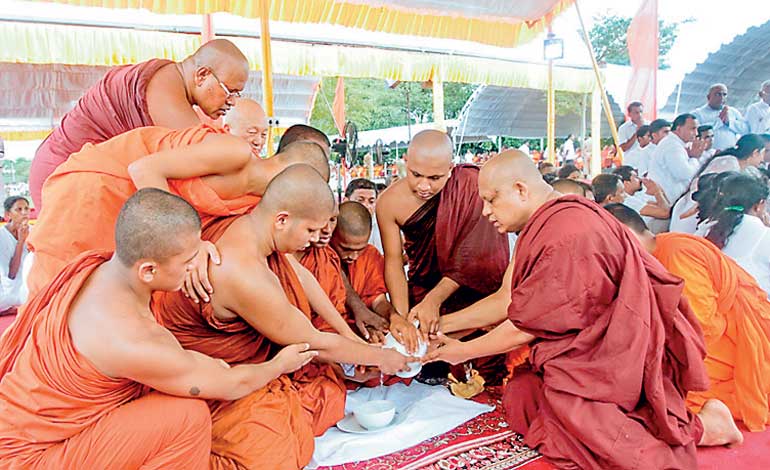
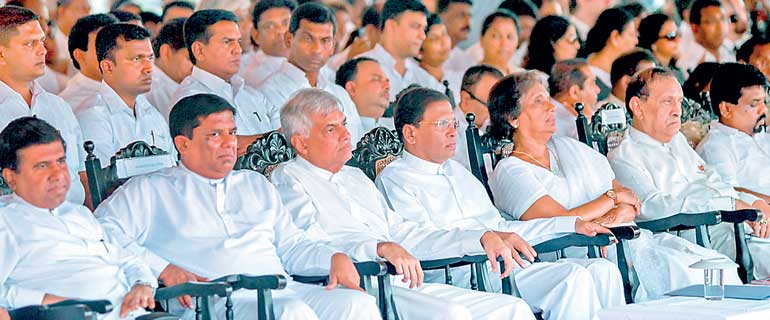
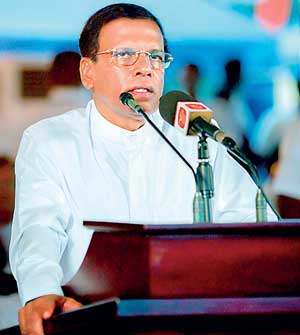
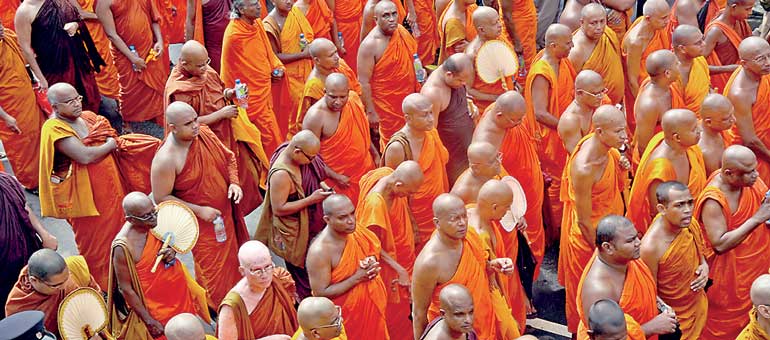
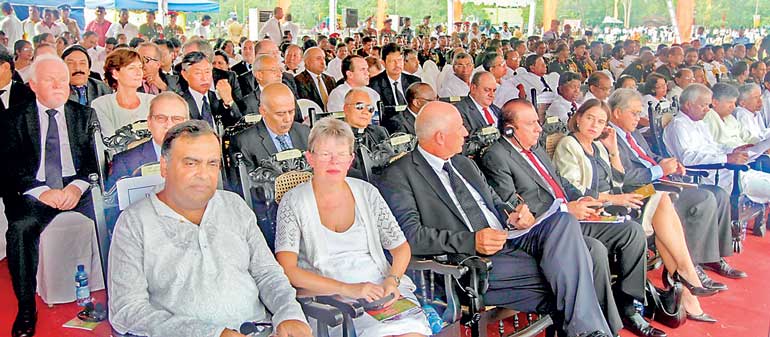
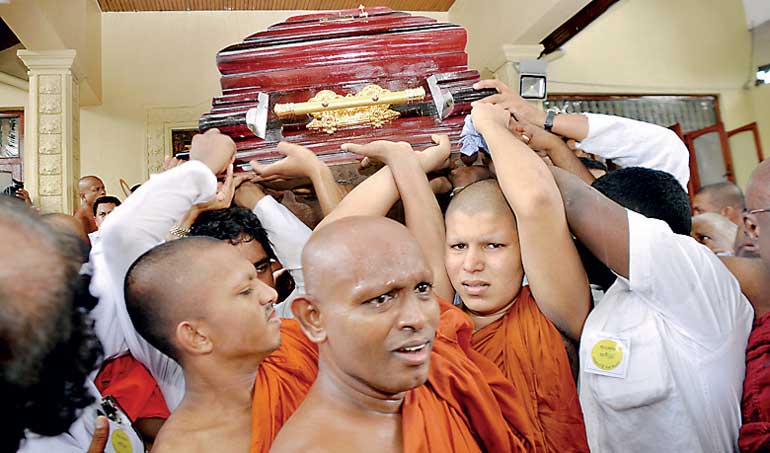
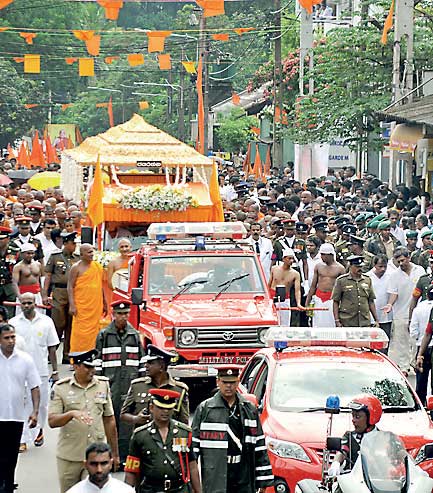
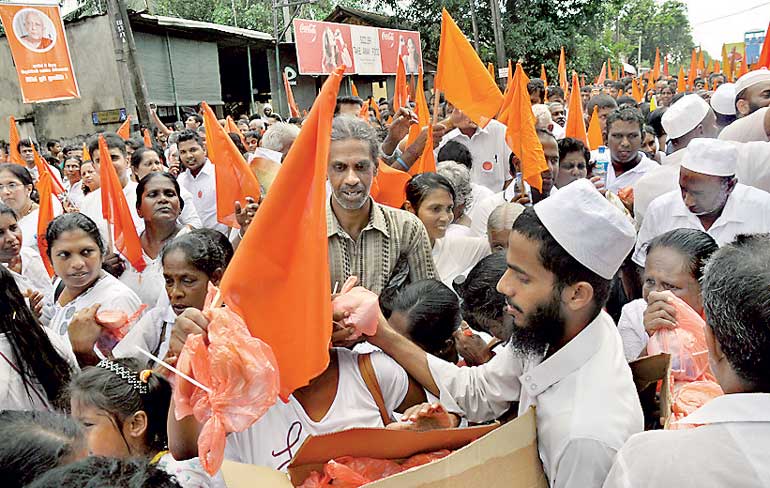
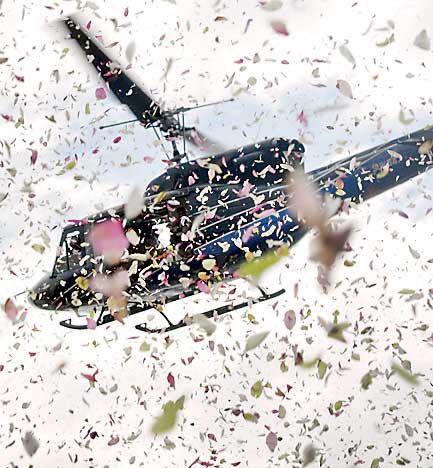
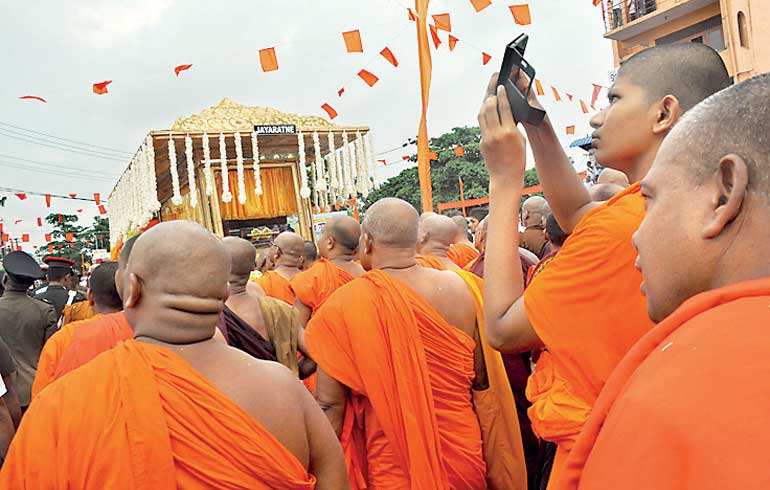
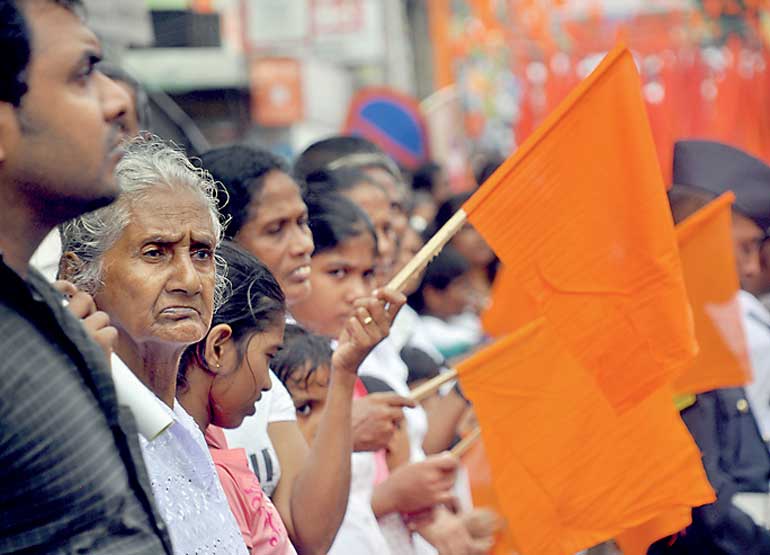
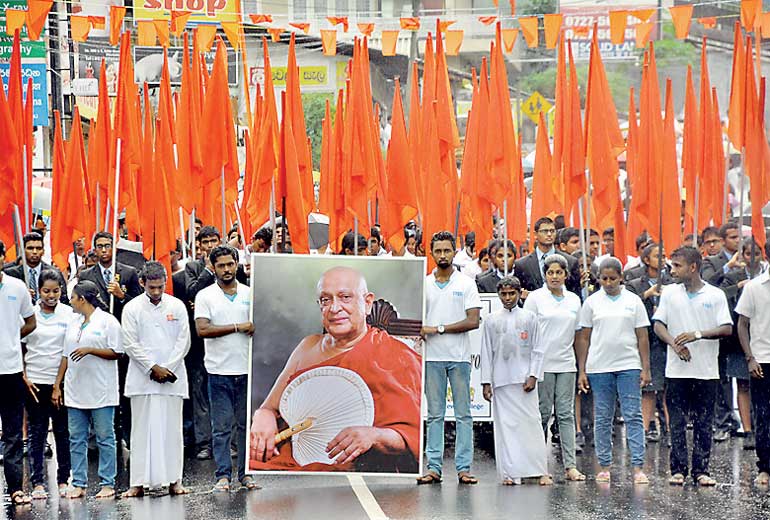
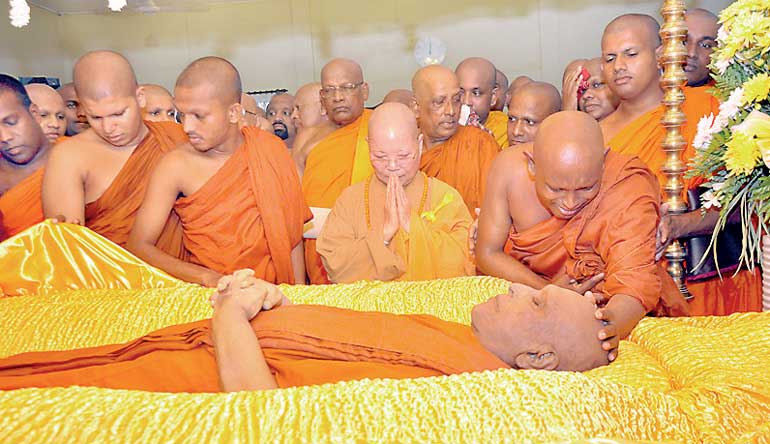
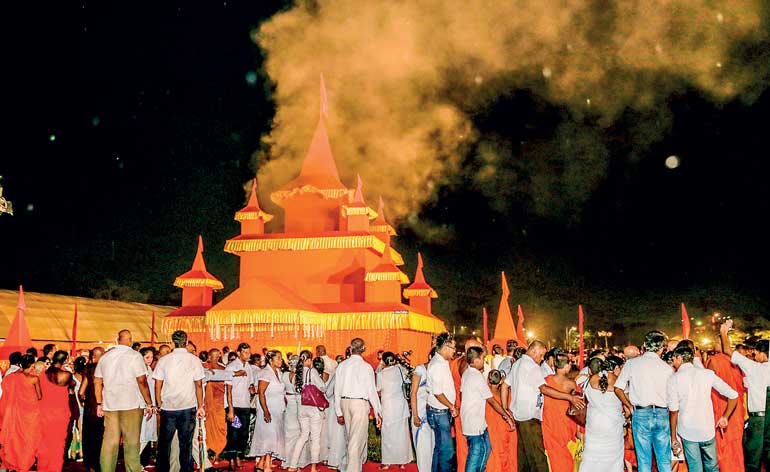
By Dharisha Bastians
As mourners grieved, the heavens wept and politicians swore to carry on his legacy, a unified nation bid a final farewell to Venerable Maduluwawe Sobitha Thero, the revered Buddhist monk, democrat and scholar last evening.
A Sri Lanka Air Force helicopter circled endlessly over thousands of mourners, showering flowers upon the monk’s remains from an overcast sky, as the funeral procession made its way from the Kotte Nagavihara, which had been Sobitha Thero’s home for half a century, to the Parliamentary Grounds where he was to be cremated with full state honours.
The canons fired and the national flag flew at half mast as the monk’s funeral pyre was lit at 6.07p.m.
A visibly emotional President Maithripala Sirisena spoke of the monk’s great struggle to restore democracy in Sri Lanka and pledged to uphold his vision and legacy.
The President said that Sobitha Thero had a great determination to abolish the executive presidency. His presidency was built on the back of that desire, echoed by millions of other Sri Lankans, he said.
“With all my strength I pledge before the remains of Sobitha Thero that I will do everything possible to abolish the executive presidency,” President Sirisena promised before hundreds of mourners and dignitaries gathered at the grounds to pay their last respects to the monk.
Sobitha Thero had been ill for a few years because of a lack of rest, as he struggled to bring about a just society and continue his social work.
“I am President and Ranil Wickremesinghe is Prime Minister today because of the foundation laid by Sobitha Thero. He is the architect of this presidency and this national Government based on the values of yahapalanaya,” President Sirisena said.
Sobitha Thero’s journey as a monk was extraordinary, President Sirisena said, it was more than a journey in the Sasana. “He wanted to create a better society,” the President said.
The Government had done everything within its power to restore the Thero to good health, the President said.
“He left us at a most unexpected moment. The whole nation is grieving at his passing. We cannot bear this pain,” the President said during his poignant oration.
The President pledged to try to achieve all that the monk had dreamed of for Sri Lanka during his lifetime.
“On your final journey, Sobitha Thero, we wish for you the supreme bliss of Nirvana,” the President said.
Prime Minister Ranil Wickremesinghe who also spoke at the funeral ceremony, said Sobitha Thero had fought to restore the people’s supremacy, the rule of law and to unite the country.
“He neglected his health this past year while he struggled to restore democracy,” the Prime Minister said.
Wickremesinghe explained that this was the first time that an ordinary citizen had been conferred state honours on his passing.
“Sobitha Thero was an ordinary citizen. He was a member of the Sangha community. But as he followed in the footsteps of the Buddha, he won the hearts and the minds of the people. He fought to restore supremacy to them, and a nation mourns him today,” the Premier said.
Opposition Leader R. Sampanthan also sent a special message of condolence, saying that Sobitha Thero had always courageously fought alongside those seeking justice. “It is our nation’s great misfortune that we have lost a Buddhist monk of his stature,” Sampanthan’s message said.
Religious dignitaries also expressed their sadness at the passing of the revered monk and people’s leader.
Sobitha Thero, was born Pandithage Don Ratnasekara in Maduluwawe, Padukka on 29 May 1942 and entered monkhood in 1955 at the age of 13. Throughout his life, he remained a non-violent revolutionary, constantly seeking social change and social justice, always standing against corruption, injustice and abuse of power by the country’s rulers.
Hailed as the architect and spiritual leader of the 8 January struggle to restore democracy in Sri Lanka, Sobitha Thero (73), proved as great a unifier in his death as he was in life, as Tamils and Muslims joined the majority Buddhists in large numbers to pay their last respects at the Kotte Nagavihara this week. Over the past four days, a Muslim charity handed out water to mourners lining up in long queues outside the temple where the monk’s remains lay in state, embodying the harmony between communities Sobitha Thero had tried to foster during his lifetime.
The Government declared a day of national mourning yesterday to honour the scholar monk whose campaign to unseat the Rajapaksa administration unified different ethnic groups, political parties, civil society movements and trade unions in January this year. As a member of the influential Sangha community, Sobitha Thero was able to stand up to the rulers and rally the opposition at time when dissent was being brutally suppressed, to bring about the democratic revolution of January 2015.
- Pix by Shehan Gunasekara